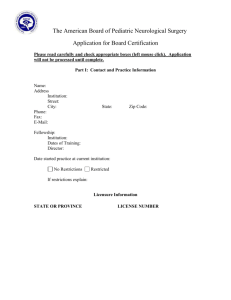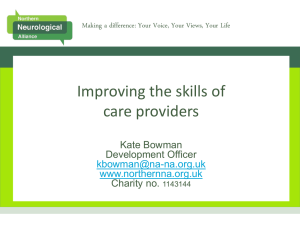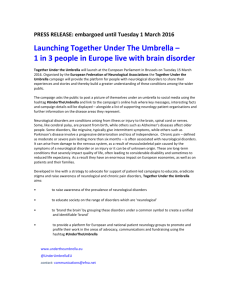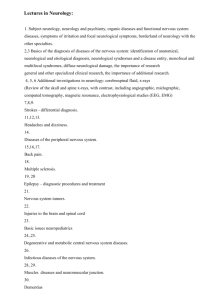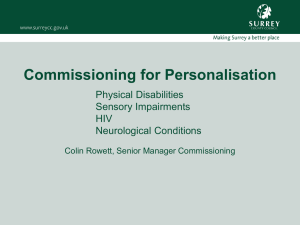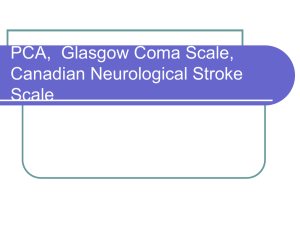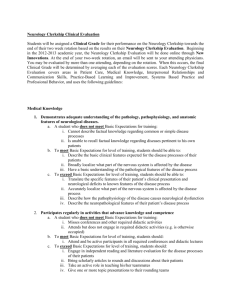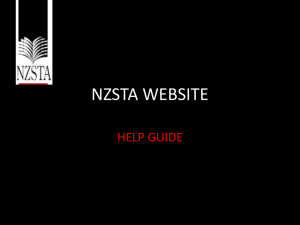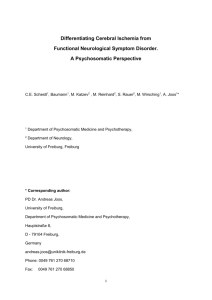Module Title: Neurological Practice Module Code: 02 21129 Level: I
advertisement
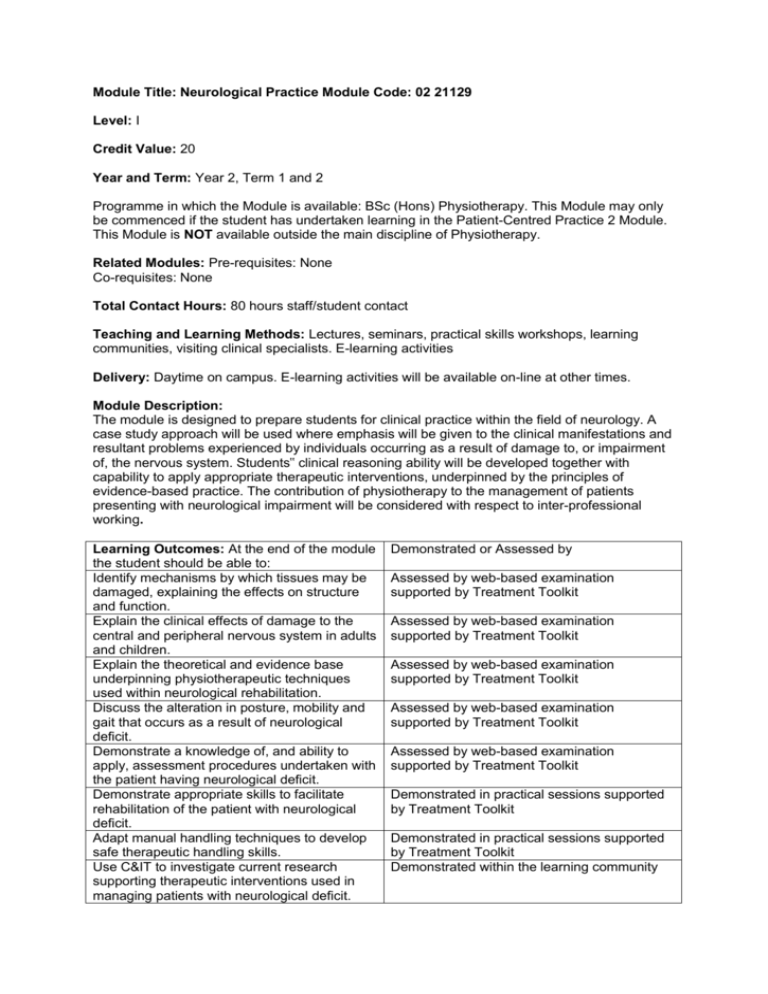
Module Title: Neurological Practice Module Code: 02 21129 Level: I Credit Value: 20 Year and Term: Year 2, Term 1 and 2 Programme in which the Module is available: BSc (Hons) Physiotherapy. This Module may only be commenced if the student has undertaken learning in the Patient-Centred Practice 2 Module. This Module is NOT available outside the main discipline of Physiotherapy. Related Modules: Pre-requisites: None Co-requisites: None Total Contact Hours: 80 hours staff/student contact Teaching and Learning Methods: Lectures, seminars, practical skills workshops, learning communities, visiting clinical specialists. E-learning activities Delivery: Daytime on campus. E-learning activities will be available on-line at other times. Module Description: The module is designed to prepare students for clinical practice within the field of neurology. A case study approach will be used where emphasis will be given to the clinical manifestations and resultant problems experienced by individuals occurring as a result of damage to, or impairment of, the nervous system. Students‟ clinical reasoning ability will be developed together with capability to apply appropriate therapeutic interventions, underpinned by the principles of evidence-based practice. The contribution of physiotherapy to the management of patients presenting with neurological impairment will be considered with respect to inter-professional working. Learning Outcomes: At the end of the module the student should be able to: Identify mechanisms by which tissues may be damaged, explaining the effects on structure and function. Explain the clinical effects of damage to the central and peripheral nervous system in adults and children. Explain the theoretical and evidence base underpinning physiotherapeutic techniques used within neurological rehabilitation. Discuss the alteration in posture, mobility and gait that occurs as a result of neurological deficit. Demonstrate a knowledge of, and ability to apply, assessment procedures undertaken with the patient having neurological deficit. Demonstrate appropriate skills to facilitate rehabilitation of the patient with neurological deficit. Adapt manual handling techniques to develop safe therapeutic handling skills. Use C&IT to investigate current research supporting therapeutic interventions used in managing patients with neurological deficit. Demonstrated or Assessed by Assessed by web-based examination supported by Treatment Toolkit Assessed by web-based examination supported by Treatment Toolkit Assessed by web-based examination supported by Treatment Toolkit Assessed by web-based examination supported by Treatment Toolkit Assessed by web-based examination supported by Treatment Toolkit Demonstrated in practical sessions supported by Treatment Toolkit Demonstrated in practical sessions supported by Treatment Toolkit Demonstrated within the learning community Discuss the roles of multidisciplinary team members involved in managing patients with neurological deficit. Discuss alterations in function arising from pathology or injury, demonstrating understanding of the impact of neurological deficit on the lives of patients and their carers/families. Assessed by web-based examination supported by Treatment Toolkit Assessed by web-based examination supported by Treatment Toolkit Indicative Content: Applied neurophysiology including neuroplasticity Overview of theories of neurological rehabilitation Pathological basis of specialist conditions e.g. CVA, Guillain Barre, Multiple Sclerosis, head injury Changes in tone Hyper/hypo, flaccidity, rigidity Movement analysis related to neurological status Assessment and treatment planning related to neurological status Appropriate outcome measures Therapeutics for tonal changes, including ice, Orthotics, FES Neurological changes seen in Gait, sit to stand, shoulder, foot, hand and trunk, functional activities SALT, Neuropsychology PNF in neurology –trunk activities Normal development, paediatric neurology, CP Cranial nerves, Vestibular rehab, Therapeutic handling Psychosocial issues of neurological impairment Neurosurgery Neurophysiological assessments- CT, MRI, nerve conduction Practical skills workshops supported by skills log showing evidence for the skills outcomes for assessment and therapy. Interprofessional working in neurological services Health promotion Summary of Method of Assessment 3 Hour - Web-based examination (100% weighting) in Term 2

